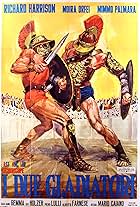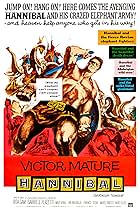
spintongues
Joined Oct 2007
Welcome to the new profile
We're still working on updating some profile features. To see the badges, ratings breakdowns, and polls for this profile, please go to the previous version.
Ratings1.8K
spintongues's rating
Reviews18
spintongues's rating
The Russian cinema is dead after the death of Alexey German Sr., it is the sad fact of life. All Russian film directors have their brains replaced with aspergilliums, and all sorts of living thoughts, stylistic and artistic efforts with Orthodoxy dogmas and cliches. I won't even mention the performance level in this overlong Cinderella rehash. Maxim Sukhanov doesn't have to act with an exterior he has, he may simply remain himself. Although here he tries (too hard) to get rid of the constipation characteristic of all Russian macho actors. The girl just moves around. There is no one else in the entire film.
Continuing with previously given promises, I re-watched this one, too. Nowadays, it looks more "together" than "Assa". In the previous "perestroika gem," the trashy crime noir was wed with a restaurant band but here we have a Mexican soap opera married to soviet kitchen dissidents. Yet the film still looks like a daisy chain of visual gags, some of them tired even at the moment of the premiere. This time, almost no Spanish shame for participants, apart from Mr. Zbruyev (Alexandra's dad) who overdoes it big time. Two scenes are especially bad: the prolonged caterwauling with strained freaky fun, "The Ship of Freaks" playing in the background; and the breakthrough into the space of frigging high spirituality through a baptismal washtub and a Christmas window with colored lights. The writer-director clearly makes a significant face here yet his problem is that he has really nothing to say. Wise face is a false friend; when all post-Soviet filmmakers had nothing to balance the ugly reality with they used the Orthodox metaphor that looked as unnatural and stupid then as it does now (however now it is also revolting). Making fun of "perestroika" was tired and bad taste even in the late 1980s. But the soundtrack record was much better than the first time.
I had to re-watch this "perestroika gem" on a promise, otherwise I'd never do it for I still remember how poor it seemed when it first came out. Approximately one half of it can be tolerable if you love the city of Yalta with all your heart (I don't), and the other half is impossible to watch without a feeling of Spanish shame. The quintessence of absurdity is, of course, the final scene, with the now deceased rock underground hero Victor Tsoy making faces while singing in a restaurant orchestra, wearing a posy of red carnation, apparently symbolizing his courage and revolutionary fervor. If we remember that red carnations were a preferred decoration of French aristocrats on their revolutionary scaffolds, and juxtapose it with the strangled Russian emperor in this film, the mixed metaphor becomes obvious. In the accompanying band (apparently his band Kino) there are Victor Ryzhenko playing guitar (who never played with real Kino), and "Negro Vitya" (apparently there is a joke there, with half of the film band members named victors) who is actually a good Russian musician of a different band (again, never played with real Kino) wearing very bad blackface (rather, brownface). The band wears black t-shirts with different Russian inscriptions on them, all being clichéd Soviet slogans, like "Save the world," all in the same typeface, in real life never manufactured (those ones in the film were US-made as "perestroyka chic") but if manufactured, never worn by real protesters. So, it all comes as a big fat lie, an act of cultural appropriation, with filmmakers trying to monetize the Soviet underground culture of the time. These days, monuments are torn down for less.






















































